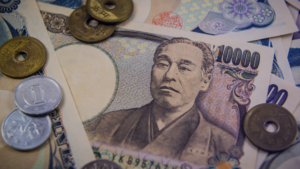The Japanese yen fell on Monday while Japanese stocks climbed, as investors evaluated the potential economic impact of the approaching national election. Market participants are considering a possible policy shift that might favor stock market growth, even as the yen remains under pressure amid inflation and global uncertainties.
The yen’s decline indicates a cautious sentiment among currency traders who anticipate that Japan’s incoming administration could adopt more flexible fiscal policies or introduce stimulus measures, likely boosting local stocks but weighing on the yen. The currency dropped against the U.S. dollar and other key currencies, reaching its lowest level in weeks as traders recalibrated their strategies ahead of election results.
Japanese equities, particularly those in sectors sensitive to fiscal stimulus, saw gains. The Nikkei 225 and Topix indexes rose as investors speculated that potential changes in leadership might bring fresh economic initiatives focused on growth, which would benefit domestic industries. Banking, construction, and manufacturing stocks saw the most pronounced increases, given these sectors could benefit from any upcoming fiscal policies.
With Japan’s election approaching, global investors are closely monitoring how the results could shape monetary policy and broader economic direction. While some remain optimistic about potential support for Japanese stocks, others are wary of the yen’s ongoing weakness, especially as central banks worldwide contend with inflationary pressures. As Japan’s stocks gain and the yen weakens, traders are tracking election-related news, noting that further signs of a growth-focused agenda could spur additional stock gains while keeping downward pressure on the yen.













